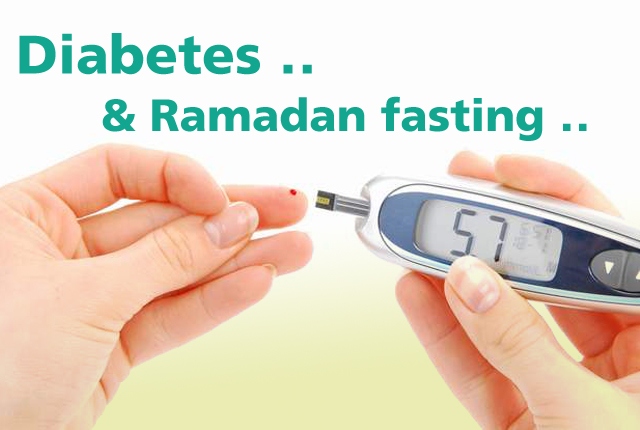Ramadan & Diabetes
Author: Dr. Abeer Mohammed Al-GhawiAbout Author: Acting Director of Health Promotion
Category: Health Care
Holy month of Ramadhan is one of special month of Islamic year, were Muslims obligatory to fast from down to sunset.
Eating pattern changed in Ramadhan because of fasting thus diabetic patient should take into consideration their diet and treatment. In general, most diabetic patients can fast safely if they follow the doctor advise on diet and treatment. However, some of them are not advised to fast based on several factors which will be addressed later. There is no general rule for all diabetic patients, so it is important to visit the doctor before Ramadhan at least one month to control diabetes, and adjust the dosage and timing of the treatment.
Diabetic patient classified to three groups based on treatment:
- Patient on lifestyle management alone:
Fasting is safe for this group. Overweight patient can utilize this holy month to lose weight with balanced healthy meals and portion control. In this group patients should eat three meals from between fatour and sahour with equal interval between each meal. Sahour should be rich in nutrients and delayed as possible.
- Patient on oral medication:
A large number of patients from this group can fast and patients are highly recommended to visit a doctor to adjust dosage and timing of medication. In general, patient who used to take the medication once in the morning can take it on fatour. Patients who take mediation more than once should take advice from their doctor before Ramadhan.
- Patient on Insulin therapy:
Patient on insulin therapy can fast during Ramadhan if they fulfill certain criteria. Patients who receiving one dose only can take it at fatour. Patients who need two doses of insulin need to consult their doctor. It is important to monitor blood glucose level in the first days of Ramadhan and discontinue fasting if hypoglycemia is experienced.
Criteria to be fulfilled by diabetic patient on insulin:
- Controlled diabetes (HBA1C less than 7)
- No hypoglycemia or diabetic ketoacidosis over the last three months.
- Insulin dose not more than 40 unit/dose.
- No complication from diabetes, like renal, heart and retina diseases.
Some patients are advised not to fast during Ramadhan based on their condition and these include: uncontrolled diabetes, more than three doses of insulin, case of hyperglycemia with DKA in the previous three month before Ramadhan, diabetic patient who live alone and afraid of hyperglycemia , retina complication or kidney failure, stroke, myocardial infarction and polyneuropathy. Moreover, young diabetic (less than twenty years old), pregnant diabetic mother, breastfeeding diabetic mother and elderly are advised not to fast during Ramadhan unless reviewed by their doctor.





